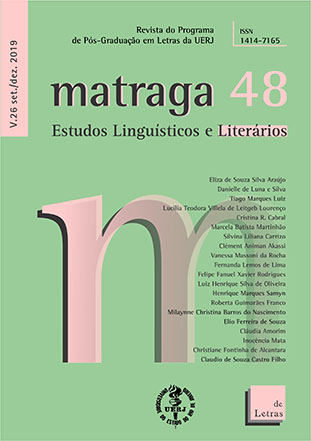Make a Submission
Language
Keywords
Information
e-ISSN: 2446-6905 | ISSN: 1414-7165 | DOI: 10.12957/matraga
Matraga é uma publicação do Programa de Pós-Graduação em Letras da UERJ
A Matraga utiliza uma Licença Creative Commons - Atribuição-NãoComercial 4.0 Internacional.






